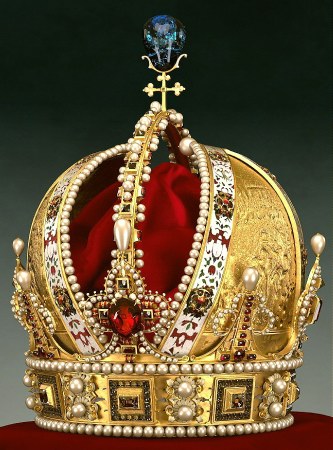
IDEALS: The Ideals of Nobility and Royalty
The Magic
Modern royalty shines in spite of some minor past set backs. It is a symbol of something special. It has not faded. But continues to do good in the world. The crown is a symbol of majesty for one’s country and its proud and worthy history of bravery and courage and potential good. It is not a thing of the past, but a hope for the future. And it seems to be everywhere almost like an innate craving of mankind for, “. . . All kinds of organizations are essentially monarchical.” (David Starkey, “Does Monarchy Matter?” Arts and Humanities in Higher Education 2005, 4, p. 215) It is in government and nations, in the military as well as in the private sector in companies, hospitals, schools, universities, churches and families. It is the “rule of one” that tends to prevail universally in all the earth. “Whether you call him Monarch, Pope, Dictator, President or Prime Minister is immaterial. In practice he is [a] King.” (Ibid.) “This [universal tendency] seems to be a product of a kind of hard-wiring in the human brain.” (Ibid.) It is something that is deep within us and we cannot ever totally get away from it. In fact, the word “monarchy” from the ancient Greek “monos archein” means “one ruler.” This practice fills the entire earth. For example, “Studies have shown that 50-70% of an organization’s climate [or atmosphere] can be traced to the actions of one person: the organization’s leader. (McBer and Company)” (www.theleadershipbook.com/environment.html) In other words, people pay a great deal of attention to whoever rules.
In addition, there is an unexplained mystique about royalty and nobility that still lingers strong way beyond the days of its former glory and splender — an enchantment. Thrones, crowns, scepters and regal majesty continues to have an alluring power today that still stirs the imagination of man.
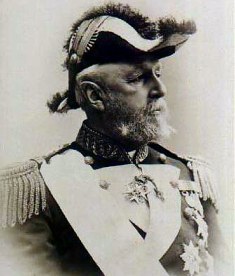
Theodore Harvey wrote, “I believe that there is something special and magical, something which words cannot quite describe, about a king or queen which a president [or politician] can never hope to offer.” He continued, “I do not want to live in a world where royalty exists only in fairytales and history books.” He calls it a national treasure–something to be cherished that connects us with a glorious past like nothing else can. “. . . Youths are not too far removed from the childhood experience of enjoying the fairytales which revolve around magnificent castles, handsome princes, and beautiful princesses. . . . I believe in keeping the great romantic tradition of royalty alive.” His thesis, in this and other articles, is that monarchy has something truly great about it to contribute that no other institution on earth can duplicate. He concluded, “I believe that for most countries constitutional monarchy, with a hereditary head of state and an elected head of government, is the best form of government.”
(www.angelfire.com/in3/theodore/opinion/ideology2.html) (www.angelfire.com
/in3/theodore/opinion/ideology1.html)
. . . In a sense, the union of men can only be symbolized; it has no palpable shape or substance. The state is invisible; it must be personified before it
can be seen; symbolized before it can be loved; imagined before it can be
conceived. (Michael Walzer, “On the Role of Symbolism in Political
Thought,” Political Science Quarterly 82, 1967, p. 194)
A collective identity must be developed for unity and patriotism to flourish in a nation. The nobility of a country shares in some of the ancient majesty of monarchy that evokes images of ancient greatness and honor. In fact, according to the dictionary, the words, nobility and royalty, are synonymous in meaning with the words “grand” or “grandeur,” that is, extraordinary, impressive, imposing, monumental–certainly something to look up to–something very elevated, impressive and inspiring. In practical terms, constitutional monarchy is associated with most of the greatest nations on earth–those who provide the highest general standard of living for their people and are the most progressive, even the most democratic of all. Theodore Harvey wrote, “. . . what today’s constitutional monarchs represent is worth celebrating” and embracing for the immense good it has to offer. (Ibid.)
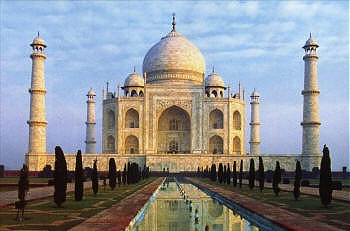
The Danger of Extremes
Monarchy is the oldest and best known form of rule known since the dawn of history. It has lasted longer and had better success than any other kind of government. New forms of government have been created, but, we cannot get away from one very important truth, and that is that government is the same thing no matter what its label. It is power. And when it is extreme, it is particularly dangerous, no matter what you call it. But whatever its name, it can be corrupted and used by depraved men in respectable dress to evil ends. Note the inherent dangers characteristic in each of the major political systems of the world:
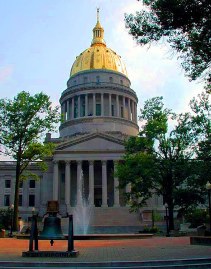
Democracy, for example, can be like two wolves and a lamb voting on what to have for lunch using the power of government to enforce their decision. In such a situation, the lamb is likely to be eaten. The problem is that majority rule, like mob rule, doesn’t naturally protect the weak from the strong. Without checks and balances, it can be terribly exploitive and bully people. It can degenerate into using mass liquidations, secret police and labor camps. The philosophy behind democracy is “might [the majority] makes right.” It creates a rule of men, not a rule of law or even common sense. For example, in a pure democracy, no one has any rights that do not fit with the current fads and whims and popular opinions of the people.
Monarchy, like a dictatorship, can be like having the Big Bad Wolf in charge of everything which could mean that your children’s very lives, their future, and their destiny may be in the balance of one man’s whims. In such a case, neither Little Red Riding Hood nor the sheep in that territory are safe from despotic, caprious and arbitrary decisions of the king and/or aristocracy who are the power brokers.
Socialism can be legalized plunder–the wholesale theft and confiscation of the goods of one part of the population to misguidedly benefit the few and promote welfarism, which is a precurser to laziness and a lack of productivity. Dan Smoot, a former FBI agent in one of his radio broadcasts in 1968 said:
. . . the idea that the weak, indolent and profligate must be supported by the strong, industrious, and frugal – to the degree that tax-consumers will have a living standard comparable to that of taxpayers; the idea that government exists for the purpose of plundering those who work to give the product of their labor to those who do not work. The economic and social cannibalism produced by this communist-socialist idea will destroy any society which adopts it and clings to it as a basic principle – ANY society. (“The Proper Role of Government” by Ezra Taft Benson, former secretary of Agriculture under President Eisenhower: www.ldshea.org/pages/left_sidebar/Const%20proper
_role_of_government.htm)
There is the old story of a wealthy nobleman in Europe, whose butler attended meetings on socialism, then abruptly stopped. The nobleman asked him why he no longer attended their meetings. The butler responded that a report was made on how much money per capita each person would receive if the rich were robbed and everyone was made equal. He said it was less than the savings he had in his bank and he figured the real appeal of socialism was the idea of getting something for nothing.
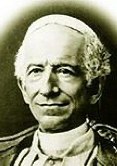
Communism and/or extreme socialism always ends up being a dictatorship, that is, Big Brother always looking over your shoulder and thus creating a police state or a reign of terror. President Grover Cleveland taught that “. . . though the people support the Government the Government should not support the people.” (P.P.N.S., p. 345) We should also remember, as Frederic Bastiat reminded us, that “Nothing can enter the public treasury for the benefit of one citizen or one class unless other citizens and other classes have been forced to send it in.” (THE LAW, p. 30; P.P.N.S., p. 350) Frederic Bastiat also declared, “How is the legal plunder to be identified? Quite simply. See if the law takes from some persons what belongs to them, and gives it to other persons to whom it does not belong. See if the law benefits one citizen at the expense of another by doing what the citizen himself cannot do without committing a crime. . . .” (THE LAW, p. 21, 26; P.P.N.S., p. 377) Bastiat concluded that, “It is impossible, to introduce into society . . . a greater evil than this: the conversion of the law into an instrument of plunder.” (Ibid., p. 12)
A Republic, which is a democracy with a constitution and usually a representative government, can become factories of corruption as in Nazi Germany and vote itself into ruin beyond repair in an all out effort to enrich itself off of the labors of others. Greed and hate are always the enemy of mankind and can corrupt even the best of laws.
Anarchy: However, it is always extremes that are the biggest enemy of all. And hardly anything could be as bad as anarchy. Anarchy is an extreme, but far worse than any other. It brings out the very worst in human nature. Where there is no law, crime and injustice rule supreme and unrestrained, and no one is safe to do anything or become something other than dead or victims of a cruel and vicious society. Governments, therefore, must exist. They are needed and important. They are, in fact, “the only means available to make peaceful human coexistence possible.” (Ludwig von Mises, www.mises.org/quotes.aspx?action=subject&subject=Government) When not extreme, they are for the good and benefit of man. As David M. Remer put it, “The fact is, regardless of government type, communist or democracy, monarchy or fascist, if the people have work, sustenance, a reasonable measure of security and hope for the future of their offspring, the will to fight and die for change will be absent. Non-democratic governments are NOT inherently evil in the eyes of their citizens.” (www.watchblog.com/thirdparty/archives/002009.html) Nor are they inherently evil at all if they protect and preserve human rights. Pope Leo XIII concluded in 1892, “. . . in all truth it may be affirmed that each of them is good, provided it lead straight to its end—that is to say, to the common good for which social authority is constituted. . . .” (www.catholic-forum.com/saints/pope0256mm.htm) It is in the extremes, or when there are excesses, where danger and destruction lurks. And this ever present threat is always with us, no matter what kind of government we have. Because as Lord Bryce stated, “all,” not some, but “all governments, irrespective of their label, tend to increase their own powers,” that is, move toward extremes. The answer to this danger was echoed long ago by Woodrow Wilson when he declared that “liberty is the limitation of government power, not the increase of it.” George Washington warned, “Government . . . is force! Like fire, it is a dangerous servant and a fearful master!” (The Red Carpet, p. 142) Ludwig von Mises wrote, “Government means always coercion and compulsion. . . . Whatever a government does it is ultimately supported by the actions of armed constables.” (www.mises.org/quotes.aspx?action=subject&
subject=Government) Great care must be taken in relation to government or the people of that nation people will mourn and suffer, and lose one of the most precious things next to life itself, and that is freedom.
Freedom, the Grand Key
It has been truly said that “A growing economy is good for everyone,” because “a rising tide lifts all boats in the harbor to a higher level,” or “when the pie grows everyone gets a bigger share.” Growth helps everyone. Ronald Reagan taught this long ago. He said, “. . . . Rather than talk about how to divide a smaller pie, let’s work and build and bake a bigger pie so everyone can have a bigger slice.” (http://findarticles.com/p/articles/mi
_m1079/is_v86/ai_4368756/pg_14) How do you do that? By creating and maintaining freedom. It encourages people to use their ingenuity, their ideas, talents and money to create wealth for themselves, which creates jobs and fuels the economy, while higher taxes and government interventions, fines, red tape, rules and regulations tends to discourage growth, freedom and enterprise. “The power to tax involves the power to destroy.” (McCulloch v. Maryland, 17 U.S. 316 (1919), U.S. Supreme Court) It is dangerous and must be kept within certain bounds by powerful checks and balances.
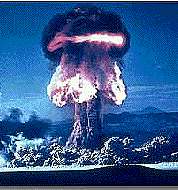
The backbone or lifeblood of prosperity is a society that is full of incentives for investors and entrepreneurs to take risks. Of all motives, by far, the most stable and dependable incentive of all that have been tried and tested on earth is the profit motive. That is, “will I be able to get somewhere for all my efforts,” “Is it worth the risk,” “Or will the government or some bureaucrat just take it away?” Again, “Why make the effort if it will not payoff or be rewarding or beneficial to me and my family?” Free-enterprise has produced all the great and significant achievements in science, art, literature and economics. Pure socialism, or socialism to the extreme, has not produced prosperity anywhere in the annals of history. When you eliminate or remove the incentive to work, to improve, to excel, what is left is mediocre and full of want. History has shown this over and over again. Winston Churchill once quipped, “The inherent vice of capitalism is the unequal sharing of blessings while the inherent virtue of socialism is the equal sharing of miseries.” (www.brainyquote.com/quotes/quotes/w/q101776.html) No government is perfect, but we must have freedom to have motivation—the kind that is the right of every man and woman on earth and is the genius of prosperity and well-being.
The True Guardians of Freedom and Prosperity:
The Protective Power of Checks and Balances
Ronald Reagan once said, “. . . Man is not free unless government is limited. There’s a clear cause and effect here that is as neat and predictable as a law of physics: As government expands, liberty contracts.” (www.lewrockwell.com/paul/paul233.html) Therefore, the best and safest kinds of governments have many checks and balances to shield it from extremes. Divisions or separations of power between head of state; the head of government, two legislative branches, an upper house composed of aristocrats and the lower house who are voted in or out by the people, a separate judicial branch, a constitution, and powerful independent state and local divisions of power with shared sovereignty can greatly assist in keeping things decentralized and safe. Jesse Helms in his classic address to the UN in January of 2000 stated:
In his 1962 classic, Capitalism and Freedom, the Nobel-prize winning economist Milton Friedman rightly declared: “Government power must be dispersed. If government is to exercise power, better in the county [locally] than in the [regional] state, better in the state than in [the whole country]. [Because] if I do not like what my local community does, I can move to another local community . . . [and] if I do not like what my state does, I can move to another. [But] if I do not like what Washington [or the whole country] imposes, I have few alternatives in this world of jealous nations.”
Senator Jesse Helms, then asked, “Where do we go when we don’t like the ‘laws’ of the world?” Hence, he concluded that, “The sovereignty of nations must be respected.” (www.sovereignty.net/center/helms.htm) Which is merely another example of division of powers.
Diversity of power is a very serious concern in the protection of freedom from oppression and tyranny. Because as Alexander Solzhentisyn once declared, “The more centralized a nation becomes, the greater the corruption at the top.” (www.despatch.cth.
com.au/Misc/JOHN_BURGE_2.htm) Contact with the political affairs of state is one of the most corrupting influences known to mankind. John Madison once said, “If men were angels, no government would be necessary.” (The Federalist, No. 51) But men are not angels. Thomas Jefferson said, “Sometimes it is said that man cannot be trusted with the government of himself. Can he, then, be trusted with the government of others?” (Works 8:3; P.P.N.S., p. 128) The point is, men need to be curtailed when put in positions of trust for the public good, because, as the old saying goes, so does life teach us, that “all power tends to corrupt and absolute power corrupts absolutely.” Hence, the ancient scholar Publius wrote, “[A]mbition must be made to counteract ambition . . . .” (THE FEDERALIST NO. 51, al 290 (James Madison) (Clinton Rossiter ed., 1999). That is, to protect the rights of man, divisions and separations of power are crucial to keep the enormity of government from breaking out of its proper bounds and ruining the advances and good it was at one time promoting. This is where a Constitutional Monarchy can make a huge and far-reaching difference. It is another check on the enormity of government force. In L’Esprit des lois (1748), Baron de Montesquieu, one of the great political philosophers of the Enlightenment, sum it all up very well. He wrote:
Liberty does not flourish because men have natural rights or because they revolt if their rulers push them too far; it flourishes because power is so distributed and so organized that whoever is tempted to abuse it finds legal restraints in his way.
It all boils down to this, in the words of Will Durant, “Without checks and balances [extremes eventually prevail], monarchy becomes despotism, aristocracy [the nobility] becomes oligarchy, [and] democracy becomes mob rule, chaos [or anarchy], and [then] dictatorship [fills the void].” (www.gov.ph/forum
/thread.asp?rootID=61011&catID=15) Checks and balances, a great boon, spreads power out so it is shared and different elements of the government have the authority and the important right to amend or void the acts of other entities. This is to ensure that the public is protected from wrong doing and that freedom is safeguarded for future generations to enjoy. The point is, no one power can do anything too outrageous as the others have the right to stop them. (For more on checks and balances, see: “Sources of Corruption in Government: The Need for Checks and Balances”)
Democracy’s Greatest Friend
First of all, monarchy, democracy and freedom are not diametrically opposed to each other. It is, in fact, quite the opposite. Dr. M. M. Eskandari-Qajar, quoted Gregory Copley, former editor-in-chief of the Journal of Defense and Foreign Affairs, as saying:
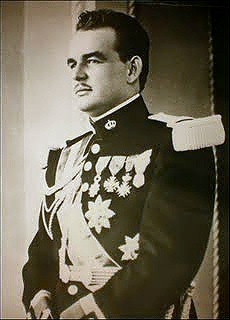
The old view that democracy and monarchy are fundamentally incompatible has been proven wrong. The Scandinavian countries, The Benelux countries [Belgium, the Netherlands and Luxembourg], are among the most . . . progressive and highly developed democracies of the world. Yet they seem to have the most consolidated [that is, well-established and solid] monarchies [on earth]. (home1.gte.net/eskandar/lecture.html)
Monarchy and democracy are not incompatible, rather monarchy can be a democracy’s best and most loyal friend and supporter. The Almanach De Bruxelles’ recent (October 2006) newsletter has an article entitled, “Why Monarchies are the Most Stable and Free Countries in the World.” This is because they have constitutions, or a supreme law, which is protective–a check on the raw power of government. Constitutions by definition involve a guarantee of certain rights and freedoms. It is significant that, “If we take constitutions (also named charts or basic laws), we find that 5 out of 10 countries (50%) with the oldest constitutions are monarchies. . . .” It goes on the state that:
If we separate the world into 5 different categories (Europe, the Americas, Northern Africa and the Middle East, the Pacific continent, Asia and Subsaharian Africa), we see that monarchies are the political system in 8 of the 10 (80%) oldest constitutions of Europe, 10 of the 20 (50%) oldest constitutions of the Americas, 6 of the 10 (60%) oldest constitutions of Northern Africa and the Middle East, 5 of the 10 (50%) oldest constitutions of the Pacific but only 3 of the 10 (30%) oldest constitutions in Asia. . . . Decolonization has worked best [been most properous] when independent countries have adopted, retained or recognized [constitutional] monarchy. (www.almanach.be/newsletter/mail2.html)
Their conclusions from the above statistics and others presented in their December 2006 issue are that “Monarchies are therefore the most stable and free countries in the world.” (Ibid.) For example, “Out of the six longest-surviving [truly] free democracies in the world, four are constitutional monarchies and three have Elizabeth II as their Queen.” (“Axe the Monarchy? Let’s sort out the Government first,” The Mail, London, England, October 6, 2003) That is, monarchies tend to have a much better track record in promoting freedom and protecting human rights than most republics. This article on the “Ideals” of monarchy and the article entitled “Advantages” present many of the important reasons why. David Flint, a professor of law in Australia, explained:
Constitutional monarchies, through their structure, avoid those four republican perils: (1) excessive rigidity, as in the American system, which is reduced to near paralysis whenever the President is seriously threatened with impeachment; (2) political conflict and competition between the Head of State, Prime Minister and Ministers, a hallmark of the French Republic (an inherently unstable model curiously followed in a number of countries); (3) extreme instability, which often haunted the Latin versions of Westminster; and (4) regular resort to the rule of the street to solve conflict, which permeates those systems which live under the shadow of the French revolution. (www.reigned.org)
If this was all monarchy achieved, it would make it one of the greatest boons on earth, but it has even greater contributions in the making of a stable, happy and prosperous society.
Monarchy Provides Something Special
C. S. Lewis once wrote, “Where men are forbidden to honour a king they honour millionaires, athletes or film stars instead: even famous prostitutes or gangsters,” not greatness or eminence. He continued about the general public, “deny it [good] food and it will gobble poison” and degenerate.* Queen Mary of Great Britain in 1923 said it well when she said, “Remember that life is made up of loyalty: loyalty to your friends; loyalty to things beautiful and good; loyalty to the country in which you live; loyalty to your King; and above all, for this holds all other loyalties together, loyalty to God.” The strength of any society depends on its loyalties. Good heroes and examples high and lifted up are needed. Kings can represent much that is good and great, especially if they are aloof of the petty squabbles and partisan politics of their nation.
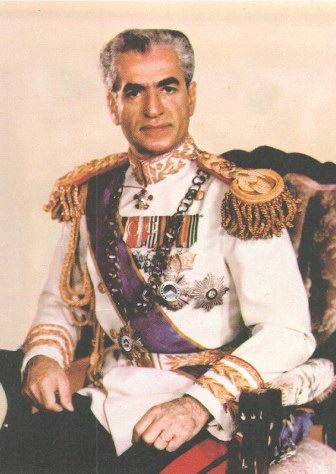
William Rees-Mogg wrote:
Anyone who has walked through the deserted Palaces of Versailles or Vienna realize how much a part of the life of a nation is lost when a monarchy is abolished. If Buckingham Palace and Windsor Castle were transformed into museums, if one politician competed against another for the position of President of the Republic, Britain would be a sadder and less interesting place. Our politicians are not men [giant enough] such as could challenge more than a thousand years of [tradition and] history!
One should never minimize the symbols, the tradition, the shining ceremonies, color, pageantry and beauty of royal splendor. It has a unifying effect with the presence of a national living icon.
There is a mystique or grandeur in it that no one else can duplicate. As T. D. Allman wrote in 1974 when Iran was ruled over by a king:
The advantage of kings over colonels was definitively demonstrated not too long ago when the Shah of Iran gave a dinner party at Persepolis, to which all the crowned heads of the world were invited. The event provoked intense curiosity and enthusiasm all around the world, and I do not know a single person — however strong his or her pretensions towards inverse snobbism — who would have rejected an invitation had it been offered. But would anybody bother to travel all the way to Persepolis just to have dinner with twenty-five or thirty colonels? (jonjayray.bravehost.com/allman.html)
There is something remarkable and special about royalty that nothing else in this world can duplicate or even come close to. Sir Alec Douglas-Home, Prime Minister of England, 1963-64, wrote, “The Queen’s appearances abroad do more in a day to gain goodwill for Britain than all the politicians and diplomats lumped together could achieve in years.” The Queen is the greatest ambassador and representative Britain has. Winston Churchill, speaking of the mysterious influence, even magical power of the Crown, wrote that the Sovereign “unites our loosely bound but strongly interwoven Commonwealth of Nations, states and races. People [or countries] who would never tolerate . . . any diminution of their independence are [transformed into] the foremost to be proud of their loyalty [and high allegiance] to the Crown.” No politicians or group of bureaucrats or highly acclaimed diplomats can command such high respect and high regard or claim such ardent and devoted loyalty. The point is, in the words of Rumwold Leigh who wrote the following for Georgian Times on October 15, 2007, “Queen Elizabeth and the rest of the family are welcomed by adoring crowds wherever they go. The monarchy remains a symbol of all that is best in all its dominions in a way politicians never have.” (www.geotimes.ge/index.php?m
=home&newsid=7263)
As Anatole France, a winner of the Nobel Prize, stated, “For every monarch overthrown, the sky becomes less brilliant [less glorious and beautiful], because it loses a star”–a powerful force for good. Sir Charles Petrie, commenting on the proverbial saying that “the proof is in the pudding,”asked:
What exactly, for instance, has France gained by the adoption of a republican regime for the fifth time [having lost its monarchy]? Does she count any more in the counsels of the world, or are her citizens any happier . . .? The stormy and checkered career of Germany since the conclusion of he First World War hardly encourages the belief that the Reich is better for the absence of an Emperor. . . .
The collapse of the Habsburg Monarchy was hailed as heralding the dawn of a new era in what had previously been the Austro-Hungarian Empire, yet for the next quarter of a century the worlds’ statesmen toiled in vain to find some solution to the problem of the Succession States until most of them were gobbled up by Soviet Russia.
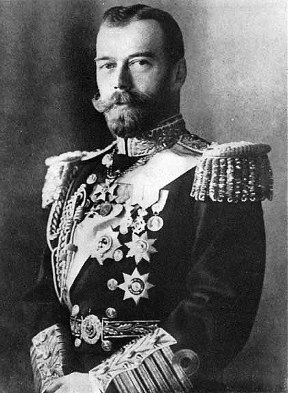
Oleg Gordievsky in a letter to The Independent on July 21, 1998 wrote:
Russia under Nicholas II, with all the survivals of feudalism, had opposition political parties, independent trade unions and newspapers, a rather radical parliament and a modern legal system. Its agriculture was on the level of the USA, with industry rapidly approaching the Western European level.
[In contrast] in the USSR there was total tyranny, no political liberties and practically no human rights. Its economy was not viable; agriculture was destroyed. The terror against the population reached a scope unprecedented in [human] history.
No wonder many Russians look back at Tsarist Russia as a paradise lost.
One of the greatest contributions constitutional monarchy could provide is an important check against the ruthless ambition of partisan politics, including the corrupting influence of powerful interest groups, corporations that want a change in regulations, lobbyists bearing gifts or, in effect, bribes, fund raising for extremely extravagant and lavish re-election campaigns, the furthering of personal business interests or enriching oneself through various questionable means while in office. Such are the temptations that beset and can so easily corrupt a short-sighted elected president or politician who only has a short time to take advantage of the highest office of State.
Safeguards to Freedom
Too often the business of politics is a great pretense or game, a chance to strut and posture on parade for a while before retiring to directorships and lecture tours, while a monarch is for life and dedicates himself solely to his country. The fact that a hereditary sovereign lives above party politics, internal disputes and petty allegiances to those who put him into office, puts him into a position to see the big picture rather than be short-sighted or blinded by misguided loyalties. By occupying such high ground, a monarch can deny assess to more sinister forces and thus protect his people. For example, concerning Great Britain, DEO Hughes wrote a letter to The Daily Telegraph on September 1, 1998:
While the Queen occupies the highest office of state, no one can take over the government. While she is head of the law, no politician can take over the courts. While she is ultimately in command of the Armed forces, no would-be dictator can take over the Army.
The Queen’s only power, in short, is to deny power to anyone else. Any attempt to tamper with the royal prerogative must be firmly resisted [because it provides a most important safeguard].
In other words, the existence of a monarch with such powers is a guarantee of continuity. It is a mainstay of peace and security in a country. A former editor of The Times, Roger Stott MP in The Independent on September 7, 1997 summed it up very well when he wrote, “I am personally . . . convinced that there are safeguards in the constitutional monarchy that an elected head of state just would not possess.” Sir Winston Churchill said in April of 1945 that:
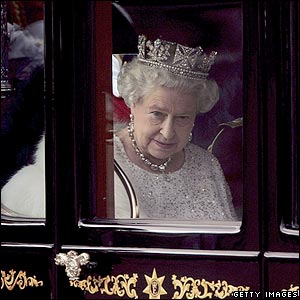
This war [World War II] would never had come unless, under American and modernizing pressure, we had driven the Habsburgs out of Austria and the Hohenzollerns out of Germany. By making these vacuums we gave the opening for the Hitlerite monster to crawl out of the sewer on to the vacant thrones.
Some of the worst bloodshed the world has ever known has been a result of the overthrowing of monarchies in the attempt to make the world safe for democracy. (www.sovereignty.org.uk/features/articles/casemon.html) In April of 1946, Sir Winston Churchill again express his solid and uncompromising view that monarchy would have averted these horrible atrocities. He said:
If the Allies at the peace table at Versailles had allowed a Hohenzollern, a Wittelsbach and a Habsburg to return to their thrones, there would have been no Hitler. A democratic basis of society might have been preserved by a crowned Weimar in contact with the victorious Allies.
Our danger actually exists in politicians who have lost a sacred commitment to values and the ideals of freedom. Hitler was, after all, a very successful politician. Baroness Margaret Thatcher, a former Prime Minister of England, wrote in November of 1995 that “those who imagine that a politician would make a better figurehead than a hereditary monarch might perhaps make the acquaintance of more politicians.” Professor Paul Eidelberg recently commented:
One does not have to be a political scientist to smell the [foul] odor of politics. Political scientists merely affirm the commonplace when they define politics as a struggle for power, a lust for self-aggrandizement. We all know that this lust is couched in honorific terms, like “democracy” or “peace” or the “common good.” We know that politicians manipulate the unwary, mislead them by spin or misleading language—even outright mendacity [that is, corruption and treachery]. (www.newswithviews.com/Eidelberg/paul109.htm)
Politicians tend to be the most unacceptable, unfit, underhanded and unworthy choice available. In contrasting monarchy and politicians, David Carr astutely wrote in 2002:
I might remind you, Mr. O’Neill that it is not the Queen that is bleeding us white with taxes, it is elected politicians. It is not the Queen that is suffocating us with pettifogging regulations and laws, it is elected politicians. It is not the Queen who has traduced our civil liberties, it is elected politicians. It is not the Queen that has delivered us, bound hand and foot, to the fat Cardinals in Brussels, it is elected politicians. Given the choice between Queen Elizabeth and the gaggle of mendacious, thieving [bad people — politicians] that people like you have in mind to replace her, I know for sure which one I would take up arms for.
Since it is the politicians that do what is unpopular, a monarch can be hailed with, “Darn the government, but bless the king.” Jeremy Paxman, a well-known BBC journalist, responded in a recent interview, that there were “many positive benefits of having a monarchy. . . .” He explained that it is not a coincidence that “the more stable societies of Europe are monarchies.” (http://findarticles.com/p
/articles/mi_qn4156/is_20061008/ai_n16769269)
And there is a great deal to be said for keeping the personification of the people [the position of head of state] out of the hands of politicians, whose electioneering slogans are based on [short-sighted and self-aggrandizing] propositions which they may or may not believe. (Ibid.)
There is far too much that is corrupt and corrupting in politics.
As our society becomes more ethnically diverse, it is surely more, not less, important to have an institution like the monarchy, devoid of politics, that can provide some kind of common uniting bond as the living symbol of the nation and an anchor in a stormy sea of political turmoil. The point is, the Crown is above this nonsense and deceit we have come to tolerate every time there is an election and in the halls of Parliament.
The splendid fact is, constitutional monarchy is most eminently compatible and supportive of democracy and our rights as human beings. It can greatly enrich and strengthen the people in many important ways. As Jack Lang, a former French Minister of Culture observed after years of service in October of 1993, “I noticed that the constitutional monarchies are the most democratic countries of Europe. I can’t understand how there could be any debate about it.” In fact, “. . . There are more non-democratic republics today than there are non-democratic monarchies.” (www.put.com/~
monarchy/tcs_intro.html) That is, monarchies are more often democratic, than non-democratic, and therefore protect liberty and make life inherently good for their citizens. In other words, it is the countries with monarchs that generally prosper above most others and appear to provide the greatest freedom and liberty generally available on the earth.
Advantages and Benefits
The benefits of monarchy are truly very high. Note the confirming and validating results of the following study by Lee Sigelman of George Washington University and Jeremy Mayer of Kalamazoo College of Michigan. This was published in the Journal of the American Political Science Association. (home1.gte.net/eskandar/monarchies.html) (Richard Morin, The Washington Post, August 22, 1999, p. B05: morinr@washpost.com)
These men analyzed royal rule from the data of two other political scientists examining “how income inequality, support for revolutionary change, interpersonal trust and other measures of civic culture were correlated with the overall level of political rights and freedoms [personally experienced] in the United States and 26 other Western societies.” (Ibid.) And it ended up being a powerful witness of monarchies fascinating potential for good:
Mayer and Sigelman found that “other factors being equal, in monarchies, public support for revolution was significantly less widespread, interpersonal trust was significantly higher, per capita wealth was considerably greater, income was significantly less concentrated, and the political system [was] significantly more democratic” than in non-monarchies. (Ibid.)
Their conclusion: monarchy represents a “royal road to prosperity, democracy and world peace.” Monarchy, of course, isn’t perfect, nothing is, but it can make an impressive contribution to the well being of society by providing strength and stability, a calm and dignified center, luster, continuity, unity, traditions, oneness, and even greatness. Perhaps because it is patterned after the order of heaven wherein the Supreme Creator is the King above all kings or the divine ruler over all that is and every will be.
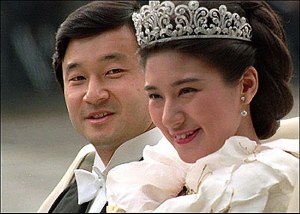
Does it surprise you that “among the 10 richest countries of the world, 7 are monarchies.” The “per capita income of the 45 monarchies [throughout the world] average $17,000, to compare with the [the rest of the world who] average $7,200 world per capital income.” (www.maldivesroyalfamily.com
/remy.shtml) Most of the richest nations of the world have monarchs as heads of state, and many of the most democratic, non-oppressive, liberty loving nations on earth are monarchies. It is also interesting that statistics concerning Commonwealth nations show that “Decolonization has worked best when independent countries have adopted, retained and recognized monarchy.” (December 2006 issue www.almanach.be/newsletter/mail2.html) Such governments provide more stability, unity and prosperity, and, above all, protect the most sacred and beautiful freedoms, rights and liberties that all mankind should enjoy in rich abundance. (See: further research below on constitutional monarchy)
In 2007, the Economic Commission for Africa (ECA) established by the United Nations Economic and Social Council (ECOSOC) published a very enlightening report named “Relevance of African Traditional Institutions of Governance” on the impact of the native traditional kings and chiefs of Africa. The main facts and observations showed monarchy to be superior and beneficial generally around. The following items were garnered from this report. The thirteen major findings were that native traditional kings and chiefs were a great advantage to the life of the people, not to perfection, but a definite improvement. It showed that invented or imposed chieftaincies were largely unsuccessful, where the traditional ones thrived and prospered. Some of the real advantages were because these kings and chiefs were like fathers to the people and promoted and enhanced greater general morale and satisfaction, because they treasured traditional democracy principles and practices, strengthened human rights and freedoms, promoted greater fairness, cohesion, unity and community feelings generally, worked to solve important problems on local levels, added strength, stability, security and continuity of leadership, created better reconciliation of ethnic conflicts, and operated exceptionally well in dispensing justice, enforcing contracts and maintaining general accountability. They also made an important contribution as liaisons between the government and their people, who ordinarily resisted many things as the people all too often thought of the government as exploitive and oppressive. Hence, cooperation has increased. Greater checks and balances on corruption, lopsided special interest groups and the overall short-sightedness of government has come with the integration of these chiefs into the upper chambers of a number of parliaments. The House of Chiefs, patterned after the House of Lords in Great Britain, can been found in Botswana, Lesotho, Malawi, South Africa, Zambia, and Zimbabwe ensuring better decisions or legislative outcomes. (The Almanach de Bruxelles monthly newsletter, No. 132, March-April 2008) The evidence is in that constitutional monarchies are a great help, asset and benefit generally among the nations so privileged to have them.
What History Teaches Us
This subchapter discusses many of the problems with democracy, not with the idea that it should be eliminated, but rather that more checks and balances would tame it and direct it in a more positive direction. Monarchy and democracy together works far better than democracy alone. One man wrote, “Failure should be our teacher, not our undertaker. It should challenge us to new heights of accomplishments. Not pull us to new depths of despair. Failure is delay, but not defeat. It is a temporary detour, not a dead end street.” (author unknown) If we learn from the past, we are not condemned to repeat it. But we can have a whole new and brighter future.
From the past, we learn that in the 19th Century dominated by emperors, kings and princes, there were about 40 million unnatural deaths or about 1 out of every 108 people died as a result of the actions of their countries. However, in the 20th Century dominated by democratic countries, 185 million died. That means about 1 out of every 22 human deaths were a result of their government’s misguided decisions. In other words, democracies are almost 5 times worse than the much better and more humane record of the kings. The 19th century monarchs had battlefield deaths amounting to about 45 million compared to democracies 101 million casualties from various wars. Hence, democracy caused 2 times more battlefield deaths than monarchy. (www.maldivesroyalfamily.com/remy.shtml)
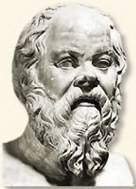
The truth is, so-called republican or democratic forms of government have a far worse human-rights track record than the worst medieval king. The worst king may have been bad, but he never killed twenty million of his own people like Stalin did! The idea that “mankind marches continually forward toward even higher levels of progress, is incorrect,” wrote Hans-Hermann Hoppe. Since democratic republics took over, civilization has declined–there is increased exploitation and social decay including “a change from limited warfare to total war, and the 20th century, the age of democracy, must be ranked also among the most murderous periods of all history.” (www.liberalia.com/htm/hhh_political_economy
_of_monarchy.htm) It is [also] a well known historical fact “that the democratic idea led to the most destructive war ever fought in the Western Hemisphere.” The American Civil War resulted in 620,000 combat casualties and many thousands of unecessary civilian deaths via war crimes. No war in the 19th century did more damage. It was much more violent and destructive than any of the Napoleonic wars or even all of them combined. (Power Kills: Democracy as a Method of Nonviolence (1997), p .24) (www.lewrockwell.com/ostrowski/TMP4yl5nc2rpu.htm)
Sadly, history seems to show the democracies did more harm than good in the 20th Century—World War II put China, almost a third of humanity, in the hands of the massmurderer Chiang and the mega murderer Mao. World War I would have ended in late 1916 or early 1917 as the result of several face saving peace initiatives, most notably by the Austrian Emperor Charles I, if the U. S. did not meddle with it and debunk it. If the U. S. had not gotten involved, the Bolsheviks could never have seized power in Russia, the Fascists and National Socialists would not have gotten a foothold in Italy or Germany. Millions of victims of communism, national socialism, and World War II would have been saved. Central and Eastern Europe (and consequently half of the globe) would not have fallen into communist hands and would not have been plundered, devastated, and forcibly insulated from Western markets for over 40 years. Living standards in the whole world would have grown immensely higher than they actually have. Austria-Hungary, Germany and Russia would have remained traditional monarchies and been productive nations instead of being turned into short-lived democratic republics which left huge vacuums for such murderous men as Hitler and Stalin to gain power in. (Hans-Hermann Hoppe and James Ostrowski: www.lewrockwell.com/ostrowski/TMP4yl5nc2rpu.htm)
Democratic regimes have been proven to be generally unstable with the exception of constitutional monarchies. Germany, for example, went from democracy in 1918 to dictatorship in 1933 to launching the war of the millennium in 1939. Democracies have been overthrown by dictatorships five times in fifty years in Pakistan. Other democratic regimes overthrown by coups were Spain, Czechoslovakia, Guatemala, Brazil, Greece, the Philippines, Chile, Argentina and others. There are always major problems when the only moral priority is “anything goes” or mob rule—another word for majority rule is pure democracy. (Ibid.) In other words, democracy in itself is no guarantee of greater justice and social harmony. In fact, public opinion is often the worst tyrant this world has ever known — far worse than 90% of the monarchs who ever reigned. An example is Socraties, probably the greatest scholar of his century, who lived in democratic Athens. He was deprived of his life by the vote of his countrymen who were blind and ignorant, but “politically correct,” yet horribly unfair and wrong. Their public opinion was a form of depotism. It was out of control, unreasonable and murderous. This is why the rule of law is so important as the highest mark of a civil and lawful society. The rule of law is opposed to the injustice of mob rule or the fickleness and injustice of public opinion.
Another important reason for the general instability of democracy is that such governments tend to be financially irresponsible especially when representatives all too often have only two major motivations: (1) to get re-elected, and (2) to enrich themselves while in office, which the gravy train provides. But with such incentives, they are unfortunately very willing to run huge deficits, make unwise alliances, even start wars of distraction and rob from future generations if it helps their careers. The point is, they tend do to do whatever will buy votes, quite often by promising to the poor extravagant welfare benefits or free handouts of some kind or another. “Evidence of this . . . [gross] irresponsibility in the United States includes chronic budget deficits, the explicit national debt, and the still huge excesses of future liabilities over future revenues on account of Medicare and Social Security. Yet politicians continue offering new plums.” (www.angelfire.com/in3/theodore/opinion/articles
/yeager.html) That is, they want to give the majority more and more benefits when they cannot even afford to maintain the programs they already have. Medicare and Social Security are in big trouble and so is the economy, yet they want to spend more money and burden the tax payer with more ineffective and inefficient spending.
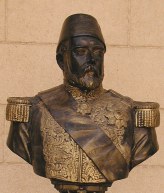
Benjamin Franklin once wrote, “When the people find they can vote themselves money, that will herald the end of the republic.” (http://inflationnation.us
/QUOTES/quotes.html) It should be a self-evident fact that governments cannot spend, spend, spend their way into prosperity and a beautiful new future. But they can, most certainly, spend their way into poverty and hardship; or, literally, mortgaged the future and make future generations pay for their foolhardy mistakes. This short-sighted, “I want it now” way of handing things is one of the major drawbacks of democracy. The genius of a constitutional monarchy is its continuity and ability to see the big picture—the long range view and the impact of serious choices that far too often are flawed, corrupt or both. Monarchy, along with other separate powers of government, can support the healthy elements or parts of democracy, which are good, but, most importantly, provide a needed check on dangerous government powers especially those focused on short sighed projects that only stifle and suffocate progress and the greater good. Thus, constitutional monarchy can help protect personal liberty and all the people of the nation. (Ibid.) For more examples of the great need we have for constitutional monarchy and the many checks and balances it can provide on government power, note the following paragraph on the problems that unbridled or unchecked democracy has created.
Otto von Habsburg wrote:
. . . Today the rights of the individual and of minority groups are in greater danger than ever before. Financial power- concentrations and large, powerful organizations generally are everywhere threatening the “little man.” Particularly in a democracy, it is extremely difficult for the latter to make himself heard, since this section of the population cannot easily be organized and is of no great economic importance. If even the topmost pinnacle of the State is handed over to political parties, there will be no one to whom the weak can turn for help. A monarchical ruler, on the other hand . . . is independent, and is there for all citizens equally. His hands are not tied in the face of the powerful, and he can protect the rights of the weak. Particularly in an age of profound economic and social transformations, it is of the highest importance that the head of State should stand above the parties. . . . (www.worldfreeinternet.net/archive/arc15.htm)
“As it [democracy] was practiced in Central Europe, [it] did not honor the rights of minorities; it did not respect the rights of the individual. . . . As a result, in these states it was ethnicity [being of the right race] which invested rights rather than citizenship. . . .” In this, both the Jews and the Bosnians shared a common heritage. They were both prime victims of democracy. Nevertheless, they both thrived and did well under monarchy. The Austrian Emperors, like most monarchs, valued all their people equally in promoting the general good of the country. The minorities, therefore, who had real ambition prospered. Even though Jews in Austria only numbered “. . . 5 percent of the population of that great state, [they] made up 20 percent of university degrees, 20 percent of government officials, and over 20 percent of the military by World War I.” They were considered assets who contributed, but after World War I, the democracies that replaced the monarchy, the majority, who now had the monopoly on power, created unnecessary and unfair problems for them. (Charles Ingrao: www.cceia.org
/resources/transcripts/5208.html) The point is: “. . . Empirical evidence indicates that democracy promotes ethnic conflict.” Why?—because “majoritarian politics” does not promote peace. It tends to create all kinds of absurd laws and policies that benefit a few at the expense of everyone else. “. . . Democracies [also] lead the world in crime statistics” on a per capita basis. Of “the twenty-one most murderous nations on earth,” speaking of domestic violence, the one that had the least amount of domestic murders was a dictatorship—the rest, the most murderous, were all democracies. (www.lewrockwell.com/ostrowski/TMP4yl5nc2rpu.htm) Hans-Hermann Hoppe, in his book Democracy: The God That Failed, concluded that democracy “contributes to crime, wasted lives, and a general decline of morality and culture.” (www.angelfire.com/in3/theodore/opinion/articles/yeager.html)
People do not generally understand that democracy does not mean freedom, liberty and equality, freedom to worship as we wish, freedom to work and trade, travel and speak out and have better lives. Freedom is not an inherent trait of democracy. Note the map to the right. It shows that all but eleven nations consider themselves as having democratic governments. Governments that do not claim to be democratic are in red. These governments are: Swaziland, Saudi Arabia, Myanmar, Bhutan, Brunei, Oman, United Arab Emirates, Qatar, Bahrain, Kuwait, and Vatican City. (http://en.wikipedia.org/wiki/Democracy) The next map shows how much freedom is enjoyed in each nation. This map reflects the findings of Freedom House’s survey “Freedom in the World 2007,” which reports the state of world freedom in 2006. It is one of the most widely used measures of democracy by researchers. (www.freedomhouse
.org/template.cfm?page=372) Countries considered free are in green, countries considered to be partly free are in orange, those considered not to have freedom, that is, to have no or very little freedom are pictured in red. Note that over half of the democracies of the world have what is considered to be no freedom in their lives. In fact, any type of government can be oppressive and be a police state. You can have a democracy that is as ugly, repulsive and corrupt as an oppressive dictatorship. Democracy, without important checks and balances, merely means majority rule, and the majority, just like any tyrant in history, can collectively impose its will on the minority. Its the old story, the strong and the rich prey upon the weak and the helpless. The “will of the people” is only good if both the people and their leaders are good.
Benjamin Constant (1767-1830), one of the most important French political thinkers, orators and representatives, taught that legislators wanting to gratify their “need to act and to feel important . . . multiply [useless] laws [or pork and barrel projects] to deal with discovered or contrived problems–and fears. [And] being able to raise vast sums by taxes and borrowing enhances their sense of power, and moral responsibility wanes.” (www.angelfire.com/in3/theodore/opinion/articles
/yeager.html) These same temptations exist now as in the past. Far too often our elected officials are thinking, “how can I enrich or empower myself” or “what’s in this for me,” instead of thinking what is in the best interests of the country and what truly makes nations strong and prosperous and free rather than thinking about handouts to buy votes and ways to obtain power and spend money, which only weakens instead of builds society. There must be a force in government that curtails such avarice. Benjamin Constant concluded that “The nation is free only when its deputies [its representatives and officials] are subject to restraint.” (Political Writings, p. 195) We need to remember that political power is so highly corrupting, addictive and compelling. This puts us all in grave danger that our liberties and our money will go to finance special interests and their harebrained ideas to create monopolies and cut the small man out. “What is history,” asked Thomas Sowell, “but the story of how politicians have squandered the blood and treasure of the humanrace?” (http://jpetrie.myweb.uga.edu/sowell.html) Harry Browne noted, “The coercive power of government is always a beacon to those who want to dominate others — summoning the worst dregs of society to Washington to use that power to impose their will upon others.” Or, as Albert Einstein said, “Force always attracts men of low morality.” That is, “. . . swarms of crooks, demagogues and despots [are attracted to it] as surely as horse manure attracts swarms of horseflies.” (Rick Gaber: http://freedomkeys.com/vigil.htm) Hence, again, the great need for a restraining power that limits and blocks unbridled passion. The point:
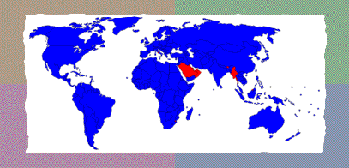
No matter who you are or what you believe, you have to understand that some day the worst control-freaks among your bitterest enemies will control the federal government, and you better have restored effective, working constitutional limitations on that government before that time arrives.” (Rick Gaber, Ibid.)
Charley Reese, a well-known syndicated columnist, noted that, “The government that governs least is certainly the best choice when fools, opportunists and grafters run it.” (Charley Reese: Ibid.)
Llewellyn H. Rockwell, Jr. wrote, “History suggests we often have less to fear from monarchs than we do from democratically elected tyrants or from multitudes acting in the name of the public interest,” who are not carefully held back by powerful checks and balances as well as hopefully their own inner integrity and wisdom. (www.mises.org/freemarket_detail.aspx?control=366) But the truth is, monarchs were rarely dictators and were much less inclined to be so than modern politically elected officials. As Count Joseph de Maistre, a famous philosopher in post-revolutionary France, observed,
Religion, laws, customs, opinion, class, and corporate privileges restrict the sovereign and prevent him from abusing his power; it is striking that kings have even been much more often accused of lacking [power and] will than of overexerting it. (http://maistre.ath.cx:8000
/sovereignty.html)
Democracy, on the other hand, as a governmental system has “spawned [or promoted] . . . autocratic and centrally consolidated government [in other words, big government or extremes in govenment and] . . . more and more groups have been given the opportunity to help themselves to the liberty and property of others.” (Ibid.) That is, socialism, or legalized theft, has prevailed. The idea of something for nothing or welfarism. Sad to say, but, “Democracy [unfortunately] has been the fountainhead of every form of socialism . . . ,” wrote Mr. Hoppe, in his book Democracy: The God That Failed. This includes the horrors of Soviet communism, Italian fascism, and Nazi nationalistic socialism. In other words, extreme systems of government, which is always where the greatest of all danger lurks and comes home to roost with a vengence. Mr. Rockwell continued:
Kings of old would have been overthrown in short order if they had tried to grab 40 percent of people’s earnings, or told them how big to make their toilet tanks, or determined how schools taught every subject. . . . One reason we put up with it now, [he explained] is the myth that says we are governing ourselves. That is why we turn a blind eye to [the many losses and hidden atrocities that occur]. (www.mises.org/freemarket_detail.asp
?control=366)
It seems that “an elected legislature and executive can get away with impositions that monarchs of the past would scarcely have ventured. Louis XIV of France, autocrat though he was, would hardly have dared prohibit alcoholic beverages, conscript soldiers, and levy an income tax.” (Leland B. Yeager: www.angelfire
.com/in3/theodore/opinion/articles/yeager.html) But modern democracies do this with ease. Theodore Harvey concluded that “modern democratic states exert more control over many aspects of their citizens’ lives than kings ever did.” (www.angelfire.com/in3/theodore/opinion
/ideology2.html) Historians have concurred that the old monarchies rarely taxed as heavily, or fought wars as freely, as republics do today.
Theodore Harvey wrote, “. . . One of the disadvantages of democracy is that it persuades the people that their interests and those of the government are identical, making them far more complacent and accepting of government abuses of power.” (Ibid.) We presently live under the illusion, really the delusion of self-government. There really is no such thing as a government “by the people, of the people, and for the people.” The people never have and never will run the government. They have very little actual authority short of the horrors of a revolution. Most, if not all, decisions, even fundamentally important ones, are left to the legislatures. Philip Allott wrote the following on this “less than noble lie” of self-determination:

Democratic societies are ruled by a ruling class, as all societies always have been. The mass of the people know that they are subjects [or pawns,] . . . of a finite number of ultimate power-holders. . . [no matter whether the government is called a democracy, a republic, a monarchy, fascist or communist]. (www.nyu.edu/pubs
/jilp/main/issues/35/35_2_Allott.pdf)
In the American system of government or any republic for that matter, wrote Charles Coulombe, a Catholic philosopher and writer, “. . . no one can be elected to national office who does not enjoy the support of one or more special interests —- how could it be otherwise?” (www.angelfire.com
/in3/theodore/opinion/articles/coulombe/monfaq.html) It costs a lot of money to be elected. And unfortunately, too many politicians do not have the scruples to think much beyond getting elected and re-elected. Therefore, democracy, Mr. Rockwell wrote, has turned out to be, not majority rule as it is supposed to be, but rule by well-organized and well-connected minority, that is, special interests groups, corporations and lobbyists, who, with great sums of money, call the shots behind the scenes and under the table, making them and the groups they represent more powerful than any king that ever lived. (www.mises.org/freemarket_detail.asp?control=366) With this in mind, Gideon J. Tucker wrote the following in 1866: “No man’s life, liberty or property are safe while the Legislature is in session.” (reported in David Friedman, The Machinery ofFreedom, La Salle: Open Court, 1989, p. 146) This is why checks and balances and a division of power are so needed to protect us. Because there are powerful forces in all governments that do not care about what is right or what is in the best interests of their nation or their fellowman. They are blinded and so wrapped up in their own short-sighted greed and passions that they cannot or refuse to see the big picture. Big money politics tend to be one of the most corrupting forces ever known on earth. Charles Coulombe, writing about special interest groups, declared:
Thus the real powers-that-be may exercise their power without any responsibility to the populace [because it is all hidden]. It is ironic [perhaps tragic] that this ‘un-democratic’ way of doing business should be the stock-in-trade of all ‘democracies,’ but there it is. Perhaps replacing the House of Representatives with a House of Lobbyists would help make government more accountable [and responsible]. (www.angelfire.com/in3/theodore/opinion
/articles/coulombe/monfaq.html)
Mr. Coulombe was being sarcastic when wrote that we should have a House of Lobbyists, but it is true that special interest groups exercise enormous power and they should become more answerable to the people for their secret acts of legalized bribery via campaign contributions and, in some cases, for their under handed acts of pure treachery. Special interests groups, whether they are organized to enlarge the power and greed of a profession, line the pockets of corporate enterprises or are social instigators who want to force their agenda on other are a bane to any democratic society. Why? Because they derail legislators with unclean money from voting for what is in the best interests of the nation as a whole.
Constitutional monarchy stands as one more needed check and balance against the greed of man. Fr. Jamie Balmes (1810-1848) wrote in his book European Civilisation, p. 43, “In quiet times, and under an hereditary Monarchy, a subject, however rich, however distinguished he may be for his talent or his valour, cannot, without madness, hope to be King; and such a thought never enters his head. But change the circumstances” where there is no monarchy present and a vacant position exists every few years, and you will have ambitious people rush in, who entertain the hope of one day obtaining the highest office in the land. (www.angelfire.com/in3
/theodore/opinion/articles/coulombe/monfaq.html) Charles Coulombe makes it clear that the atmosphere of politics makes a head of State who is free from party squabbles and fads and money grabbing, a wonderful difference, because the reality is that:
. . . the strife [and horrible expense] that conflicting parties cause is endemic [commonplace] to the modern state; the welfare of the people is always the first thing to be sacrificed in preparation for the next coup, election, or however the particular republic customarily changes its head of state. It is almost a maxim that those who strive for high office are the least worthy of it. (Ibid.)
No wonder Fr. Jamie Balmes wrote that “. . . in practise there is nothing more wise, prudent, and provident [than hereditary monarchy].” (See above) Without it, when no monarchy exists to fill the vacuum of power and glory, the seeds of trouble and revolt are sown in the deep in the hearts of the overly ambitious. Republics are notorious for being politically unstable—spending their means in fighting, coups or on lavish elections instead of benefiting their fellow man. No wonder monarchy most generally costs less and benefits the country so much more than having a presidential head of state.
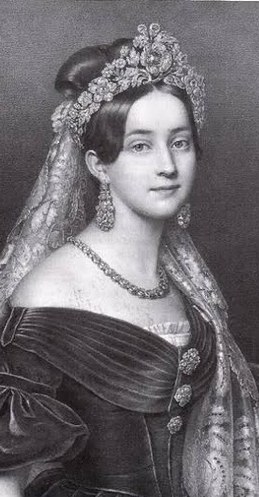
And it is important to realize that hereditary kings and sovereign princes being charged with the welfare of their nations for all their lives generally did a much better job in the past and generally do a better job even now. Why? Jean Jacques Burlamaqui (1694–1748), one of the fathers of international law, gave an excellent common sense answer. He wrote that the king or:
. . . [sovereign] prince, whose crown is hereditary, all other circumstances being equal, will take greater care of his kingdom, and spare his subjects more, in hopes of leaving the crown to his children, than if he only possessed it for life.” (www.constitution.org/burla/burla_2203.htm)
Jean Bodin (1530–1596) a renown French jurist and philosopher, noted that:
It is to be observed . . . that the conservation of the domain [the prevention of deficit spending] is much better secured in a monarchy than in an aristocracy or a popular state. [In a democracy or republic, ] the magistrates and collectors of taxes are only concerned to convert what belongs to the public to their own private advantage, and each thinks only either of gratifying his friends, or of winning popular favour at the public expense. (Six Books of the Commonwealth, Book VI, ch. 2)
Republic and democracies are infamous for spending money they don’t have and irresponsibly borrowing it from the future, which is, in effect, robbing and/or plundering future generations of their prosperity. The reason why a king or monarch is less likely to be involved in this shenanigans of theft, in the words of Hans-Hermann Hoppe, is that the hereditary king “. . . will want to avoid exploiting his subjects so heavily . . . as to reduce his [their] future earning potential to such an extent that the present value of his estate actually falls.” (www.angelfire.com/in3/theodore/opinion
/ideology2.html) That is:
. . .the long range vision of a monarch is like that of a private property owner who has a vested . . . interest in making sure that the nation remains wealthy [and prosperous]. [Such a monarch] is keenly interested in making sure that the citizens are cared for since it is their loyalty [and allegience] that makes the monarch viable [or even possible]. (http://undoingsocialism.blogspot.com
/2008/03/constitutional-monarchy-is
-best-form-of.html)
Kings tend to be protective and build and strengthen the nation for a long and prosperous future for his loved ones and the people. In other words, he invests in the nation and its people.
While, on the other hand, politicians tend to merely build themselves up like leeches or parasites in the few short years they have. They throw everything into getting re-elected by making compromises or sell their votes for campaign money. They also tend to look for a quick fix to problems rather than for long-term solutions. Other short-sighted extravagance include deceitful pork and barrel projects via ploys, attachments or earmarks to legislation, which are dishonestly and unethically used to buy votes or build a legacy. They literally divert hundreds of millions of dollars to pet projects, which would otherwise have been rejected. (www.cagw.org/site/PageServer
?pagename=reports_earmarks)
A monarch, being at a vantage point in history and tradition, provides a more stable, solid and long-lasting term of government with less casualties and less waste precisely because he or she is more concerned, not only with the present, but future generations of his countrymen, their freedoms, their happiness, their general welfare and their overall worth and bests interests as a nation. A good analogy was expressed by HRH Prince Osman Ibrahim, who wrote:
A president can be likened to a tenant [a renter] who strips the property bare when his lease expires, whereas a sovereign has to act as a responsible custodian [or steward] of the property in order to pass it on [undefiled] to the next generation. . . . (Mark Watson, Royal Families Worldwide, p. viii)
One of the important reasons for this and other positive contributions is that the King is taught to think of himself as a father who nurtures, protects, deeply cares about and sacrifies for his people.
The result of this has been that in modern times, Karl of Austria-Hungary; Nicholas II of Russia; Umberto II of Italy; Henri, Count of Paris, a claimant to the throne of France; Michael of Romania, and Constantine II of Greece; all chose abdication and/or exile rather than plunge their nations into bloody civil war.” (www.angelfire.com
/in3/theodore/opinion/articles/coulombe/monfaq.html)
That is, these giants, men of unusual greatness and inner good, these heroes, would rather lose it all than hurt or damage the lives of their children—their countrymen or the citizens of their nations. Compare this sacred and glorious anxiety for life to that of republican leaders who have pointlessly encouraged our participation in war and bloodshed. Theodore Harvey declared, “. . . It is hard to see how the 20th century’s politicians, who twice led Europe into [world] wars which made the dynastic conflicts of old look like skirmishes by comparison, have surpassed the pre-modern hereditary monarchs in skill and wisdom. (www.angelfire.com
/in3/theodore/opinion/ideology2.html) That is, democratic republics, without the advantage of the foresight of constitutional monarchs, have caused “somewhere around 180 million people [to] have been killed in one Twentieth Century atrocity or another–a far larger total than for any other century in human history” and it may be getting worse. (users.erols.com/mwhite28/warstats.htm)
The sad truth is, it has been acknowledged by a number of observers that wars are increasing, not diminishing, in their horror and travesty, in this, the 21st Century, especially civil wars among ethnic and/or religious or tribal groups. That is, the number of conflicts may be going down, but the intensity and damage is increasing. This isn’t the complete answer, but constitutional monarchs, as true public servants, have saved their countries from disaster and harm—sometimes at great personal risk and heroism. For one example, King Juan Carlos I of Spain, a constitutionally limited king, by virtue of his courage and determination and the respect of his people, averted a coup in his country. HRH Prince Osman Ibrahim thoughtfully observed:
If we examine the fate of such countries as Iran, Iraq, Libya, Afghanistan and Ethiopia, the Balkan states and others following the overthrow of their sovereigns, we see the level of mismanagement and devastation their republican systems have given them. On the bright side we can look at the positive evolution of the restored monarchy in Spain and Cambodia and to the healing that has taken place within Uganda since the restoration of their kingdoms. (Mark Watson, Royal Families Worldwide, p. vii-viii)
Modern history truly shows that monarchy tends to create, maintain and perpetuate stability. It may be one of the most viable and needed answers to many of the problems of our times. As a shining example, history shows that:
England [a country with a long standing constitutional monarchy] is the only country in the world that has for the past three hundred years not had a revolution, a civil war, a military dictatorship, a foreign invasion, or any other serious breakdown of constitutional order. It has throughout this time maintained high levels of political and economic freedom. There is no other country in all history that has been so reliably free and stable for so long. (“In Defense of the Monarchy” by Sean Gabb: www.seangabb.co.uk/flcomm/flc083.htm)
This important track record—a record that no other modern nation has ever duplicated, is a tribute to the traditions of constitutional monarchy and a system of checks and balances. “Winston churchill often described parliamentary democracy and constitutional monarchy as being imperfect–but the best that man had yet devised.” (Harold Brooks-Baker, “Why the monarchy must stay,” Newsweek, March 11, 1996) “It is only to the extent we are willing to learn from history that we are able to avoid repeating its horrible mistakes.” (www.gov.ph/forum/thread.asp?rootID=61011&catID=15)
The secret is a mix of the best of the three basic government types: a monarchy, an aristocracy and a democracy create powerful checks and balances. Sir William Blackstone (1723-1780), a renown and eminent English jurist and professor of law, wrote that the English Government therefore consisted of “true excellence,” not perfection, but greatness, nonetheless. He wrote:
. . . all parts of it [the government] form a mutual check upon each other. In the legislature, the people are a check upon the nobility, and the nobility a check upon the people . . . while the king is a check upon both, which preserves the executive power from encroachments. And this very executive power is again checked and kept within bounds by the two houses. . . . Like three distinct powers in mechanics, they jointly impel the machine of government in a direction different from what either, acting by itself, would have done; but at the same time in a direction partaking of each, and formed out of all; a direction which constitutes the true line of the liberty and happiness. . . . (Commentaries on the Laws of England, Volume 1, Chapter 10, Document 6: http://press-pubs.uchicago.edu/founders/documents/v1ch10s6.html)
Ideals and Responsibilities
The greatness and magnificence or genius of having a nobility and a royal family, are in their amazing ability to make lasting and significant contributions to the liberty and rights of man. They also tie us to a time-honored and heroic past, reminding us that we can yet have a great and prosperous future if we work at it. But to do so, we cannot get away from the fact that to be truly noble means to consistently manifest the admirable qualities of high moral character and integrity. For “righteousness exalteth a nation; but sin is a reproach to any people.” (Proverbs 14:34) (See the article: “Virtue and Greatness”)
Professor Charles T. Tart, a professor at the Institute of Transpersonal Psychology in Palo Alto, California, stated:
There’s an old joke about what’s the best form of government for [the people in] an insane asylum? Democracy, a monarchy, socialism, communism, a limited representative system? Of course, the answer is, it doesn’t matter what form of government. If everybody is crazy, whatever form you have will get screwed up and all sorts of terrible things will happen. (www.enlightenment.com/media/interviews/tartall/tart2.html)
It is our personal and societal sins and immorality—our cruelty and selfishness that creates the most of the problems we experience in government as well as in our personal lives. A noble and good hearted people can build strong, legendary nations. A ruthless and degenerate population will not create anything to brag about—they will, in fact, hurt each other. The values that people generally hold deep in the hearts are played out in their own lives and in society. Cardinal Henry Manning (1807-1892) wrote in the nineteenth century, it is the principles “of order, authority and law — social relations, social rights, social duty” which make a people, which make a nation, which make a state or an empire great and good. But democracy, being amoral or without these fundamental values, creates and perpetuates a society:
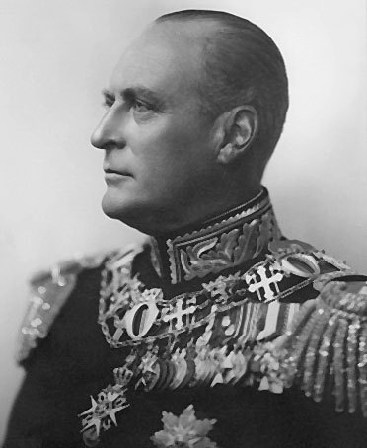
. . . with nothing but the most limitless freedom for individuals to publish whatever they think, dress and behave howsoever they wish, [with this in mind] who is surprised that courtesy, decency, respect, order, authority, beauty, charity and manners have all but disappeared from the ‘civilized’ West?” (Gladden J. Pappin: www.seattlecatholic.com/article
_20030131_Vatican_On_New_Catholic
_Statesman.html)
Edmund Burke declared that it is “natural” to “. . . fear God; . . . look up with awe to kings; with affection to parliaments; with duty to magistrates; with reverence to priests; and with respect to nobility. . . . All other feelings are false and spurious, and tend to corrupt our minds, to vitiate our primary morals, to render us unfit for rational liberty.” (Ibid.)
For example, violence, which is increasing world wide, is diametrically opposed to what makes nations great and a people prosperous, happy and well. Only in very extreme situations is it justifiable. We firmly believe that governments are for the benefit of man. No government is perfect–all types of governments have failings. But a lousy government system well carried out is far better and more superior than a good form of government carried out poorly or without scruples. The point is, if a people are basically protected in the inherent and inalienable rights by the government of their land, they should sustain and uphold that government. Their rulers and magistrates should be honored. Sedition and rebellion against such a government that is basically attempting to protect the innocent, punish the guilty and support the priceless rights of man, is clearly wrong. Anarchy and insurrection are enemies of mankind and should be avoided like a dark and horrible plague. It all boils down to this, all human life must be considered sacred and extraordinary. In fact, regard for life is considered to be a test of a genuinely civilized country. Rabbi Heschel once said, “The degree to which one is sensitive to others people’s suffering, to other men’s humanity, is the index of one’s own humanity.”
We simply cannot have a free and prosperous world until each person recognizes and accepts personal responsibility for his or her behavior and decides to be a contributor. That is, to be a part of the answer or solution instead of being a problem to others. Great people make great nations where the resources of a nation can be devoted to its people (less taxes, more incentives to produce) rather than in spending so much fighting and punishing crime and wrong doing, operating ineffective social programs or letting the inefficiency of government flush the hard earned money down the drain.
A monarch who is devoted to exemplifying the highest ideals can do what few others have the power to do. “The law,” as well as the expectations of the people, explained Lord William Blackstone:
. . . ascribes to the king . . . certain attributes of a great and transcendent nature [‘certain qualities, as inherent in his royal capacity, distinct from and superior to those of any other individual in the nation’]; by which the people are led to consider him in the light of a superior being, and to pay him that . . . respect, which may enable him with greater ease to carry on the business of government.
Nevertheless, in the here and now, such high admiration must be earned and maintained. It must be real and sincere and deeply felt so it is lived and exemplified. (www.lonang.com/exlibris/blackstone/index.html?bla-107.htm&bla
-107fn.htm&../footer.htm) Jean J. Burlamaqui, one of the founding fathers of international law wrote that, “Sovereigns ought . . . to endeavour to excel in such virtues, as are most necessary to support the weight of so important a charge, and to regulate their outward behaviour in a manner worthy of their [high and exalted] rank and dignity.” (www.constitution.org/burla/burla_2207.htm)
In this regard, “A monarch . . . faces a [much] higher responsibility than a professional politician; Prince [and later King] Norodom Sihanouk of Cambodia told the [Constantian] Society in an interview . . . ‘The duty of a king or of a prince worthy of the name consists of remaining true, under all circumstances, to the noblest and most legitimate ideals of the nation to which he belongs.'” (www.put.com/~monarchy
/tcs_intro.html) The point being, a king or queen “is better placed than anyone in the country to encourage the transmission of traditional moral and ethical values: he is the symbol of tradition.” (www.maldivesroyalfamily.com/remy.shtml) Monarchy is a belief in what is best in society: belief in God, morals, traditions, loyalty, patriotism, and family. We wholeheartedly support these ideals. The progress and advancement of the human race has everything to with these high qualities. Without the values that make people solid, honest and benevolent, everything erodes and corrupts.
Someday people will learn the hard lesson that material things and worldly ambitions merely distract us, but do not bring us lasting inner satisfaction. And they are of little value in making people wholeheartedly honest, loving, caring, contented and good inside themselves. In other words, “All nations need an ethic of public service to temper and offset the culture of economic success [or materialism] that would otherwise dominate social life, making it cruder and greedier”– and more likely to promote violence and crime. (www.hoover.org/publications/digest/4495431.html) The enjoyment and realization of some of the greatest things in life—freedom and the basic human rights cannot exist in a society built on vice, debauchery and lawlessness. Unless the people honor, value and cherish virtue, the future of a civil and peaceful society is in great jeaprody. This love of what’s right and just and true must be promoted, extold and held in the highest esteem by all the leaders and heros of the nation to lay a foundation for a future worth living in.
A monarch who strives to be truly noble in heart and soul or honest deep inside him or herself and whose duties are therefore performed in the right spirit will be an example of selfless service and dedication and a representative of the very best that his or her nation has to offer. No wonder, “upholding the ideals of service and duty is one of [the most important and enobling] purposes of a constitutional monarchy.” (Ibid.) In fact, it is his or her chief and foremost contribution. To be politically active is a grave mistake—a death knoll for monarchy in most countries. Service, integrity and example is the prince’s buckler and shield.
One study concluded that the job of maintaining authority is the task of politicians whose careers are transitory and can be blamed and condemned and leave office. However, if a monarch becomes engaged in this kind of work, his career as king or prince is likely to be transitory and come to an abrupt and eternal end. (Richard Rose and Dennis Kavanagh, “Monarchy in Contemporary Political Culture,” Comparative Politics, Vol. 8, No. 4 (Jul., 1976), pp. 548-576: http://home1.gte.net/eskandar/lecture.html)
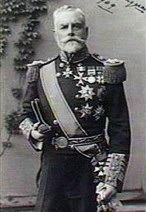
Politics should be left entirely to the politician. An article in the Times (August 2, 1993) stated, “Modern monarchs neither have nor need executive power. Integrity and continuity are their stock in trade. These qualities are becoming more precious [and needed as time marches onward].” All the miseries and evils which men suffer, from vice, crime, ambition, injustice, oppression, slavery, and war, proceed from a lack of appreciation and admiration for the values that promote decency, tolerance, integrity and the work ethic. (Paraphrazed from Noel Webster — www.free2pray.info/5founder quotes.html) Our society desperately needs heroes and people to look up to and admire. Sadly, in the words of the late Ezra Taft Benson, a former U.S. Secretary of Agriculture:
Most of the [so-called] heroes who are being glamorized today are no longer noble, accomplished, humble, or righteous. From reports in books, magazines, and newspapers especially the youth sections we learn that they are lewd, obscene, immoral, avaricious, and in some cases even cruel. It is the very life-style . . . to [be avoided] that is paraded before our young people by their celebrated peers. To deflect the admiration of youth from these examples of ugly life, we must start young.” (God, Family Country, p. 250)
If youth have never been taught to know what is right and beautiful, valued and admired, we cannot expect them to pursue what is the right. Here a royal family can be indispensable in creating “a kinder and gentler society” by taking upon them a role most befitting a royal or truly noble dignity. Jean Jacques Burlamaqui wrote, “. . . virtue in princes has this advantage, that it is the surest method of inspiring their subjects with . . . like principles. For this purpose they need only show the way. The example of the prince has a greater force than the law. It is as it were a living law, of more efficacy than precept.” (www.constitution.org/burla/burla_2207.htm)
Human beings aren’t born civilized; we have to learn almost everything important by example. The great English philosopher Edmund Burke said, “Example is the school of mankind, and he will learn at no other.” (www.scu.edu/ethics/publications
/iie/v13n1/charactered.html)
We can all be truly noble and leave a bright legacy of inner nobility and a worthy example. The common man or woman, though unsung and unhonored, and untitled can be classed among the truly great of this or any generation. They are not common, but beautiful people and noble in every way. These are the true shining heroes. Dr. Joseph R. Sizoc (1919-2004), a U.S. diplomat declared:
Let it never be forgotten that glamour is not greatness; applause is not fame; prominence is not eminence. The man of the hour is not apt to be the man of the ages. A stone may sparkle, but that does not make it a diamond. A man may have money, but that does not make him a success.
He then declared:
It is what the unimportant do that really counts and determines the course of history. The greatest forces in the universe are never spectacular. Summer showers are more effective than hurricanes, but they are not remembered.
Now the conclusion:
The world would soon die but for the fidelity, loyalty, and consecration of those whose names are unhonored and unsung. There is, therefore, no life however humble, but may take its place in the building of a braver and better tomorrow. It is so easy to exaggerate the importance of the [so-called] important and underestimate the importance of the [so-called] unimportant. (reference unknown)
Truly, if it was not for the inner goodness of the common man, all we would know in this world is the terrible horror, utter anguish, and ruin that naturally flows out of a lawless and ruthless citizenry. We must have a great people to be a great nation.
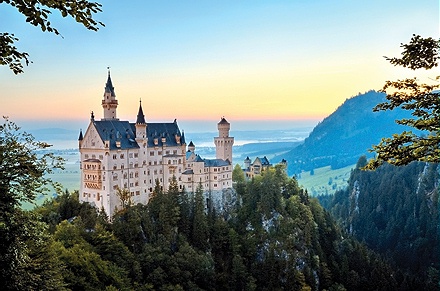
The kings, princes and noble families are responsible for the moral conduct of their countries. Because of all people, their examples are observed and followed. (See: “Monarchy and Nobility: Divine Rights and Responsibilities”) Taki Theodoracopulos made a most true statement when he said:
Most people erroneously believe that royals are born into a position of privilege and ease. In actual fact it is an extremely hard job, stressful, unrelenting, and one that does not permit the slightest deviation from duty. (“Royal Is as Royal Does,” National Review, August 9, 1999)
Is such devotion and effort worth it. Yes, note the following positive benefits that royal and noble families generally provide to their countries:
(a) The 2009 Global Peace Index (GPI) of the Institute for Economics and Peace, shows that out of 144 countries, constitutional monarchies rate 6 out of the most safe and least violent nations on earth.
(b) The 2008 Corruption Perception Index (CPI) researched by Transparency International shows that constitutional monarchies dominate the top 10 and the top 20 least corrupt nations on earth. Not only is crime lower in constitutional monarchies, but recent studies also demonstrate that constitutional monarchies generally do better in global competitiveness, economic freedom, human development, life expectancy and the general perception of personal happiness. Republic generally far much worst in every area. Constitutional monarchy is a superior form of government that can be a blessing to all nations. “In fact, constitutional monarchies lead the world for peace, order, good government, prosperity, safety, peace of mind, longevity, wealth, and the good life.” (Quote from article—last reference below) Monarchy has a lot to offer and contribute to quality of life.
www.visionofhumanity.org/gpi/home.php
www.transparency.org/policy_research/surveys_indices/cpi/2007
http://idw-online.de/pages/en/news233757
www.heritage.org/research/features/index/countries.cfm
www.swivel.com/data_columns/spreadsheet/1856881
www.nohypehealth.org/dakoma.html
http://blog.guykawasaki.com/2007/02/the_world_map_o.html
www.qldpcs.com.au/inc.php?inc=info&uid=6972&return=%2Finc.php
%3Finc%3Dproducts%26mcatid%3D3%26scatid%3D79%26catid%3D87
With these facts in mind, is it any wonder that prominent people would take note of it. Georg Wilhelm Friedrich Hegel (1770-1831), for example, was one of the towering philosophers of the nineteenth century. Most of the major schools of thought grew out of his deep insights and ability to observe facts. He concluded after much thought that:
Since the idea of the State is based on freedom, and since constitutional monarchy realizes freedom more than any other form of government, it follows that constitutional monarchy is the highest ideal of the state. (Frederick C. Beiser, Hegel, Routledge, 2005, p. 253)
The reason for this conclusion is explained in great detail in this article and in the article on “Advantages.” Hegel realized and proclaimed that, “. . . Constitutional monarchy [of all the types of government forms possible] provides the best constitutional safeguards for freedom.” (Ibid.) Limited monarchy provides much more than this, but freedom is one of the most precious things we can enjoy on this earth. Interestingly, not only do constitutional monarchies dominate the top countries in terms of personal happiness, but the Kingdom of Denmark, according to a 2008 university study in England, is the happiest country on earth. (www.cbsnews.com/stories/1998/07/08/60minutes/main13502.shtml) (www.msnbc.msn.com/id/25460793/?GT1=43001)
An Offer of Support
If any country really wants to substantially improve their place and status among the nations of the earth, improve their economic and political stability, and their prosperity and wealth, they could not do much better than to establish and set up a royal house—a hereditary head of state and a honorable peerage under his or her charge. In addition, they could institute more powerful and appropriate checks and balances to protect what they have establsihed from the fact that there will always be people who scheme to deprive others of their wealth and their freedom through various governmental monopolies or scams. The people must be protected from such and government must never be used as a gravy train for anyone.
Any country interested in this should choose those who already bear the ancient right to this regal privilege the “de jure” king or queen already in the land in order to connect the people to the greatness of their past, their sacred heritage and the magic of royal and/or imperial splendor. These royal persons have, after all, the highest right by blood to this entitlement on earth. The senior descendant, if appropriate, of those who once ruled in their lands, has this most legitimate claim as the rightful and proper heir to the throne. (See: “Sovereignty & the Future of Nobility and Royalty”)
The International Commission is, along with other groups, ever ready and willing to offer free help to any nation or country on earth who needs support in such a great undertaking. For it is not only profoundly better in almost every way to have an empowered, constitutionally limited, monarch, but it is cheaper, and more cost/effective. (see the analysis supplied at www.put.com/~monarchy/archiveindex.html) It is one of the greatest bargains a country could ever obtain. “Monarchy [is] the noblest thing in heaven or on earth.” Titus Livy (59 BC-AD 17) concluded this in his extensive study of history in his book, The History of Rome from its Foundation. (http://veritasexnihilo
.wordpress.com/category/monarchy) (See the article “Sources of Corruption in Government” for other equally important needs to ensure stability, freedom and prosperity, as well as “The Model Constitution”)
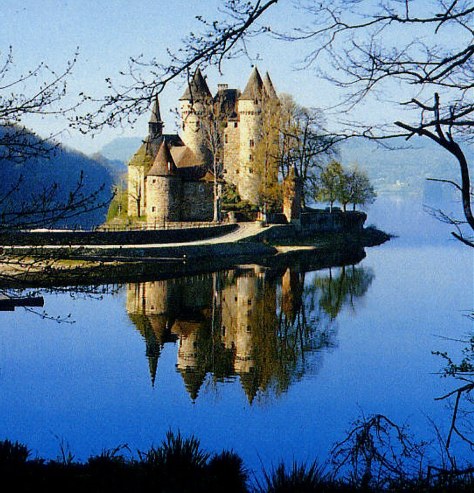
Conclusion
In conclusion, monarchy not only has great appeal, but we believe that constitutional monarchy is better suited to serve the common good and to protect freedom and liberty than any other system ever devised by man. (Please see “Advantages”)
- All quotes are from www.monarchy.net/quotations.htm unless otherwise specified. A hearty thanks is extended to the International Monarchist League, the Constitutional Monarchy Association and the Monarchist Society of America for their continuing contributions to this cause. Their websites are respectively as follows: www.monarchy.net for the former two and home1.gte.net/eskandar/monarchistsociety.html for the latter.